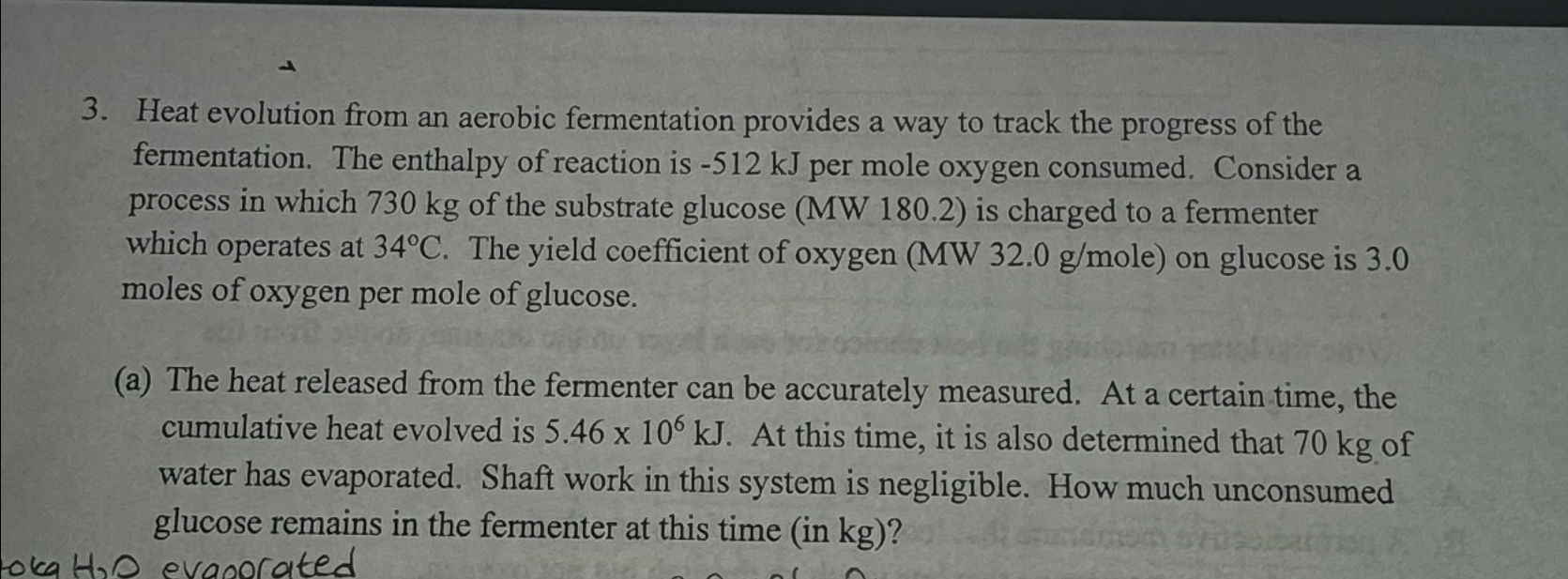Question
Heat evolution from an aerobic fermentation provides a way to track the progress of the fermentation. The enthalpy of reaction is -512kJ per mole oxygen
Heat evolution from an aerobic fermentation provides a way to track the progress of the fermentation. The enthalpy of reaction is
-512kJper mole oxygen consumed. Consider a process in which
730kgof the substrate glucose (MW 180.2) is charged to a fermenter which operates at
34\\\\deg C. The yield coefficient of oxygen (MW
32.0(g)/(m)ole) on glucose is 3.0 moles of oxygen per mole of glucose.\ (a) The heat released from the fermenter can be accurately measured. At a certain time, the cumulative heat evolved is
5.46\\\\times 10^(6)kJ. At this time, it is also determined that
70kgof water has evaporated. Shaft work in this system is negligible. How much unconsumed glucose remains in the fermenter at this time (in
kg)?

Step by Step Solution
There are 3 Steps involved in it
Step: 1

Get Instant Access to Expert-Tailored Solutions
See step-by-step solutions with expert insights and AI powered tools for academic success
Step: 2

Step: 3

Ace Your Homework with AI
Get the answers you need in no time with our AI-driven, step-by-step assistance
Get Started


